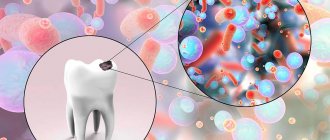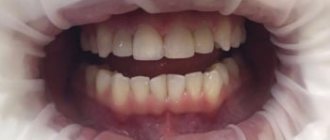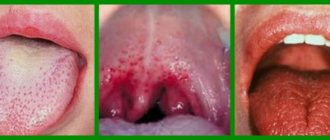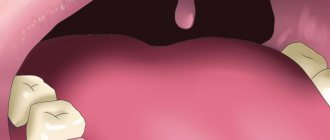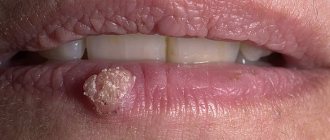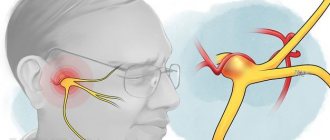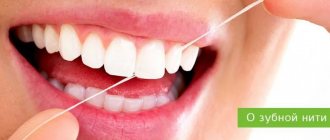Causes of high blood pressure
High blood pressure is divided into 2 types:
- primary (essential) hypertension (or hypertension) is the most common type of high blood pressure, often has no cause, develops over many years, the risk increases with age;
- secondary hypertension occurs against the background of the development of any disease (kidneys, endocrine system organs, sleep apnea) or taking certain medications.
Causes of high blood pressure include:
- old age (the older a person is, the higher the likelihood of developing hypertension);
- family history of the disease (high blood pressure in parents or other close relatives);
- unhealthy diet - diet high in salt and fat;
- lack of physical activity;
- overweight, obesity;
- sleep disorders;
- chronic diseases (chronic kidney disease, endocrine disorders, diabetes, high cholesterol);
- race (eg, African Americans have a higher risk);
- gender (in middle age, high blood pressure develops more often in men, in old age - in women; women who had high blood pressure during pregnancy are more prone to arterial hypertension in old age);
- certain medications (contraceptives, decongestants, NSAIDs, antidepressants);
- stress;
- smoking;
- alcohol abuse;
- non-compliance with sleep schedule, night shift work.
High blood pressure is often called the “silent killer” due to its lack of noticeable symptoms. In some cases (especially when blood pressure levels reach dangerously high levels), a person may complain of headache, nosebleeds, and shortness of breath. Many people do not associate these symptoms with abnormal blood pressure readings because they are not in the habit of periodically monitoring their blood pressure with a doctor or at home.
What adverse events can the Sputnik V vaccine cause (GamCovidVac)
15-20% of vaccinated people experience a flu-like syndrome (headache or muscle pain, malaise) or pain at the injection site. Serious adverse events following GamCovidVac vaccination are rare. 0.001% had a severe anaphylactic reaction. This is one person per hundred thousand vaccinated.
Vaccination has been going on at GMS Clinic since January 2022; more than 5 thousand people have been vaccinated; adverse events were observed in less than 15%. More often observed: rise in body temperature, pain at the injection site, rise in blood pressure. Most of these events were not considered serious, so patients were able to successfully receive the second component of the vaccine. Once I had a severe allergic reaction. This patient was not given the second component. The symptoms went away safely, but for further vaccination this patient will most likely be recommended a different drug.
Adverse reactions usually subside within three days after vaccination. Their intensity and duration depend on various factors and indicate the reaction of the immune system. Common and harmless adverse events include:
- temperature (if it does not cause discomfort, you don’t have to take anything);
- muscle pain;
- weakness;
- headache;
- local reaction: redness and swelling at the injection site.
Adverse events such as increased body temperature or local manifestations at the injection site usually disappear after a maximum of three days. If side effects are very bothersome, you can take a non-steroidal anti-inflammatory drug (NSAID), such as paracetamol or ibuprofen. You can apply a cool compress to the injection site.
Any medicine, including vaccines, can cause allergic reactions. Not a single manufacturer, unless he is a charlatan, will forget to indicate the possibility of an allergic reaction in the instructions for use of the drug. Also, any food product, any molecule heavier than salt, can cause an allergic reaction. If you suspect an allergy, you should consult a doctor.
Blood pressure readings
- Normal pressure is from 90/60 mm Hg. Art. up to <120/80 mmHg Art.
- Prehypertension (risk factor for the development of arterial hypertension) - 120–129 mm Hg. Art. / <80 mmHg Art.
- Arterial hypertension 1st degree - 130–139 mm Hg. Art. or 80–89 mm Hg. Art.
- Arterial hypertension 2 degrees - ≥140 mm Hg. Art. or ≥90 mm Hg. Art.*
*American Heart Association classification.
Online blood pressure calculator on the NHS website.
American College of Cardiology online cardiovascular risk (stroke, heart attack and other diseases) calculator (risk of complications for patients with high blood pressure over the next 10 years and beyond).
Common problems that can be caused by wisdom teeth
Most often, problems that arise during the period when eights emerge from the gums are due to the fact that by the time they appear, a person has already formed strong bone tissue, and there is practically no room left for them in the jaw. All this significantly complicates the process of growth and eruption.
A tooth appearing in an already formed jaw can cause the following problems:
- Development of periconaritis. The peculiarity of this pathology is the formation of a “hood”. In addition to the pain that occurs when food gets on the gums and irritates the nerve endings, pathogenic bacteria accumulate in the “hood”, which can cause inflammatory processes in the oral cavity.
- Cyst formation. Dense gum tissue and the space constrained by the formed jaw forces the erupting tooth to grow in the direction of least resistance. Because of this, its roots can grow into the cavity of the maxillary sinus, forming cysts that become infected, inflamed and remain the cause of toothache for a long time.
- Incorrect position in a row (dystopia). As the third molar grows, it can displace teeth that have already erupted. This disrupts the bite and deforms neighboring teeth.
- Caries formation. Eights cause certain difficulties in daily care, as they are located too deep in the oral cavity. Due to poor hygiene, food particles and bacteria accumulate on their surface, creating a favorable environment for the development of infectious processes.
- Damage to the root of an adjacent tooth. During eruption, the third molar puts pressure on the adjacent tooth, thereby damaging its root. This can provoke an inflammatory process or degeneration of dental tissue.
- Incomplete eruption (retention). Impacted third molars can cause quite a lot of problems - they often cause inflammation of the gums and diseases of adjacent teeth.
If the above problems appear, the dentist may recommend resorting to their removal without waiting for the development of more serious complications.
How often should you check your blood pressure readings?
Blood pressure is usually measured when visiting a doctor (for example, a therapist). There is no need to specifically visit a specialist for this; it is enough to ensure that the pressure is measured at least once every 2 to 5 years, starting from the age of 18 (with normal blood pressure and no increased risk of cardiovascular diseases).
People over 40 years of age, and people 18–40 years of age at risk of high blood pressure, should have their blood pressure checked at a healthcare facility at least once a year. If a diagnosis of arterial hypertension has been established or a person has other risk factors for developing cardiovascular diseases, it is recommended to measure blood pressure more often and not neglect monitoring at home. Your doctor will help you choose a device for measuring blood pressure (tonometer).
For children 3 years of age and older, blood pressure is measured regularly during annual routine examinations.
Caution: The American Heart Association does not recommend the use of wrist- or finger-worn blood pressure monitors, which are less accurate.
If recommended, measure blood pressure at home twice a day on the left and right arm: in the morning before breakfast (but not immediately after waking up) and before taking any medications, and in the evening, preferably at the same time. In each case, you need to measure the pressure 2-3 times (at short intervals, 1-3 minutes) for a confident, accurate result. 30 minutes before, do not smoke, do not eat, do not drink coffee (and alcohol), do not exercise, and empty your bladder. During the measurement, you must sit in a comfortable position, leaning back in a chair or armchair, do not cross your legs and ankles, and do not talk. The arm on which the cuff is worn must be freed from clothing and held at heart level; it is most convenient to place it on a table or armrest of a chair. Don't forget to write down your measurement results.
Undesirable effects of other Russian vaccines
"CoviVac"
This is an inactivated vaccine. That is, a killed coronavirus is delivered to the body. This is an old and proven technology, many vaccines against viral diseases have been made using it: polio, influenza and others. Dead viruses cannot cause disease, but their entry is enough for the body to learn to recognize them. As a result, when a live virus enters from an infected person, a strong immune response is formed immediately.
To enhance the immune response, aluminum hydroxide was added to CoviVac. One dose contains up to 0.5 mg. This dose is much less than permissible.
The instructions for the drug say that the vaccine can rarely cause headaches and short-term fever. Pain and hardness at the injection site are more common.
"EpiVacCorona"
This vaccine differs from Sputnik V and CoviVac in that it is not created using viruses. It is not killed or neutralized virus particles that are introduced into the body, but artificially created proteins. Using them, the immune system is trained to recognize real viruses. This method of creation reduces the reactogenicity of the vaccine, so it is recommended for vaccination in elderly or weakened people.
In a publication in the Russian journal Infection and Immunity, the vaccine developers claim that the only adverse events were mild pain at the injection site. And the CoviVac vaccine does not cause headaches, muscle weakness and other common symptoms.
Is it possible to normalize high blood pressure and what to do?
Yes, with the help of lifestyle modification (influencing modifiable factors), treating the underlying disease, taking medications that normalize blood pressure.
Lifestyle modifications include proper nutrition, including avoiding fatty foods and reducing salt intake (the DASH (Dietary Approaches to Stop Hypertension) eating plan recommended by the US National Heart, Lung, and Blood Institute is preferred); weight normalization; quitting smoking and alcohol; regular physical activity; stress management (for example, mastering relaxation techniques).
If you have persistently high blood pressure due to a medical condition (such as diabetes) or caused by taking certain medications, it is recommended that you consult your doctor. Control of the underlying disease, refusal of drugs (or their replacement) that increase blood pressure, make it possible to stabilize the patient’s blood pressure and condition.
Nonmodifiable risk factors associated with high blood pressure include age and family history.
How might the nerve react?
Often teeth due to deep caries and pulpitis. And such “ache” will very soon turn into more serious, excruciating pain, not only when cleaning and eating hot or cold food, but also in a calm state, both day and night.
With pulpitis, a cavity develops in the coronal part and root canals of the teeth, where the nerve fibers are located, which over time fills with pus and blood. And although the epicenter of inflammation in this case is the nerve, the patient may initially complain that the whole row of teeth is “aching.” The sensations are localized in one tooth a little later, the pain becomes unbearable and requires the intervention of a dentist.
Treatment of high blood pressure
Treatment of arterial hypertension is based on lifestyle modification, constant monitoring of blood pressure, and the use of antihypertensive drugs (medicines that lower blood pressure) - one or more, based on the patient's individual situation.
Medicines prescribed for high blood pressure include: ACE inhibitors, angiotensin II receptor inhibitors, calcium channel blockers, diuretics, beta blockers, alpha blockers, alpha beta blockers. In most cases, these medications do not cause side effects. However, you should not self-medicate; you should consult a doctor who will select an effective drug and prescribe a regimen for its administration. It is important to follow all recommendations, observe the dosage and not skip taking the drug(s).
When diagnosing arterial hypertension, 24-hour blood pressure monitoring (ABPM) provides an accurate idea of the patient’s blood pressure levels. ABPM also excludes the factor of chance, distortion of real blood pressure readings (the so-called “white coat” syndrome or “white coat” hypertension), and registers imperceptible changes in blood pressure (for example, during sleep). This test is recommended by the American Heart Association to confirm the diagnosis of hypertension.
What causes hypotension?
If you suddenly change your body position
Get up quickly or, for example, sit up sharply in bed. This is called orthostatic hypotension. When a person assumes a vertical position, blood, under the influence of gravity, rushes to the legs and abdominal area, and the pressure in the vessels drops. In order to raise blood from the legs and normalize blood pressure, the autonomic nervous system increases the heart rate and constricts blood vessels.
Healthy people do not experience discomfort, since this mechanism works very quickly. But in some cases, the autonomic nervous system fails. As a result, the pressure drops, the blood does not have time to rise from the legs, the brain lacks oxygen, and symptoms of hypotension appear. This happens, for example, in pregnant women, in people with certain diseases such as diabetes, and in every fifth elderly person.
Sometimes healthy people experience similar sensations, for example due to heat, and there is nothing to worry about. But if you feel dizzy every time you change position, you need to see a doctor.
If you eat
After eating, blood rushes to the gastrointestinal tract, and to prevent pressure from dropping too much, the autonomic nervous system constricts blood vessels and increases the heart rate. However, in about a third of older people it cannot cope with such a load. This condition is called postprandial hypotension. If this happens, you need the help of a doctor.
If you grow too fast
As you might guess, the problem most often occurs in children and adolescents: due to rapid growth, a malfunction occurs in the functioning of the autonomic nervous system. As a result, when you change your posture or bend over, symptoms such as dizziness and fainting appear. This is called nerve-mediated hypotension. Children usually outgrow the problem, and hypotension goes away on its own.
But sometimes neurally mediated hypotension is a sign of serious neurological diseases. In this case, the person needs the help of a doctor.
If you get sick
Blood pressure may drop in people who are dehydrated, those who have had shock, diabetics, and patients with arrhythmias and heart failure. In this situation, doctors seek to cure or control the disease that is causing hypotension.
If you take certain medications
Sometimes hypotension is a side effect of anti-anxiety medications, diuretics, painkillers, or blood pressure pills. In order to solve the problem, it is usually enough for the doctor to adjust the dose of the medication.

